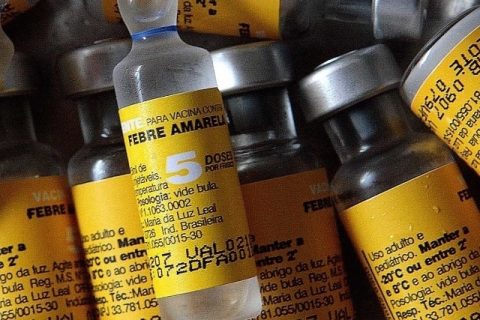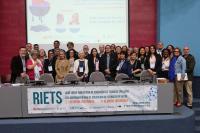Yellow Fever Newsletter
Key facts about Yellow Fever
Yellow fever is an acute viral haemorrhagic disease that is endemic in tropical areas of Africa and Latin America.
Cases can be difficult to distinguish from other viral hemorrhagic fevers such as arenavirus, hantavirus or dengue. Symptoms of yellow fever usually appear 3 to 6 days after the bite of an infected mosquito. In the initial phase, they include fever, muscle pain, headache, shivers, loss of appetite, and nausea or vomiting. For most patients, these symptoms disappear after 3 to 4 days. However, 15% of patients enter a second, more toxic phase within 24 hours of the initial remission when high fever returns, and several body systems are affected, including the kidneys. Treatment is symptomatic, aimed at reducing symptoms for the comfort of the patient; vaccination is the most important preventive measure against yellow fever, is safe, affordable and highly effective, providing effective immunity within 30 days for 99% of those vaccinated. A single dose is sufficient to confer sustained immunity and life-long protection, with no need for a booster.
Yellow Fever in the Americas for the General Public (in PDF)

Vaccination is the most effective way to prevent yellow fever. In high-risk areas, where vaccination coverage is low, prompt recognition and control of outbreaks using mass immunization is critical to prevent epidemics. It is important to vaccinate the majority (80% or more) of the population at risk to avoid transmission in a region with a yellow fever epidemic.
Several vaccination strategies are used to protect against outbreaks: routine immunization in infants; mass vaccination campaigns planned to increase coverage in countries at risk; and vaccination of travelers going to endemic areas of yellow fever.
The WHO recommends that only one dose is already able to protect the person immunized against the disease for the rest of their lives, without the need to administer any booster.
According to the International Health Regulations (IHR), countries have the right to require travelers to obtain a yellow fever vaccination certificate. If there are medical reasons for non-vaccination, a certificate issued by the competent authorities must be submitted. The IHR is a legally binding framework to prevent the spread of infectious diseases and other health threats. The requirement of the vaccination certificate is at the discretion of each State Party and is currently not requested by all countries.



